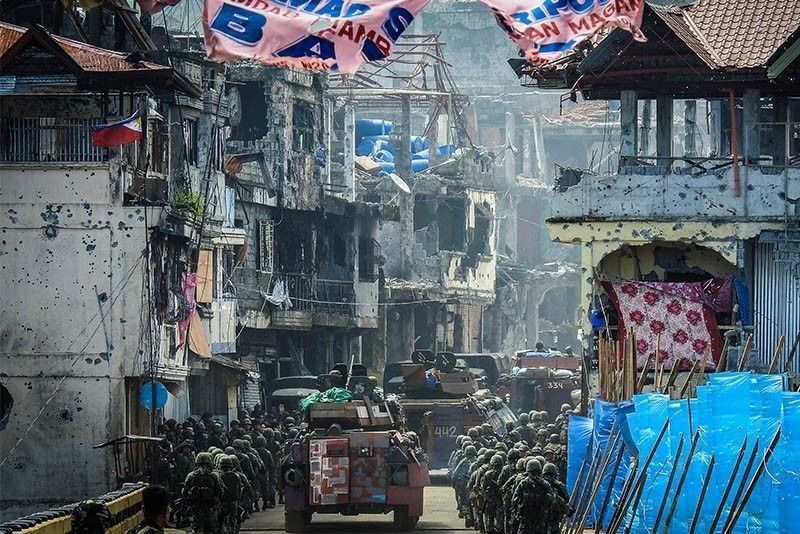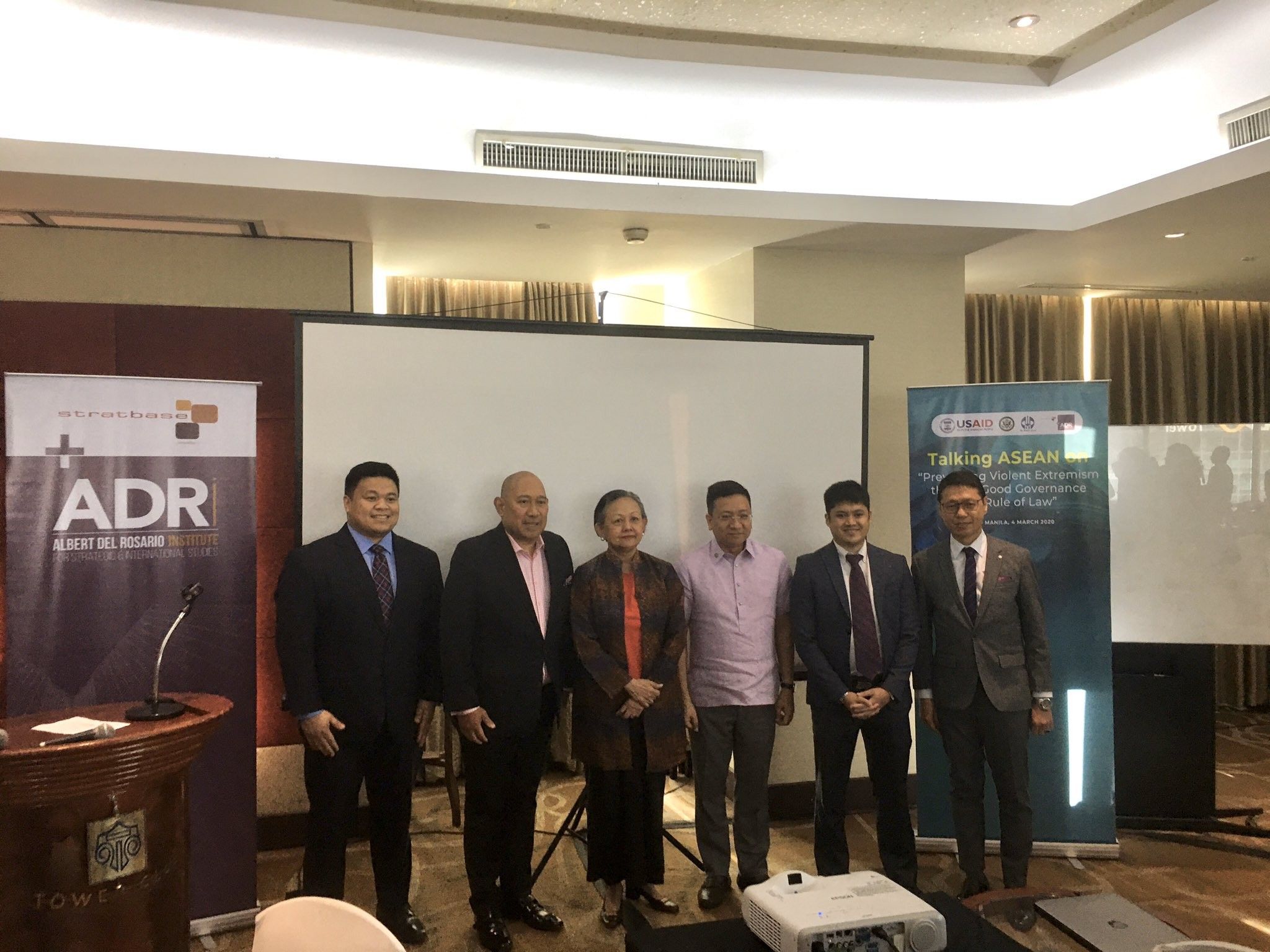How the DILG plans to prevent, counter violent extremism

MANILA, Philippines — On Wednesday afternoon, a representative of the Department of Interior and Local Government (DILG) said that the administration was also taking a whole-of-government approach against radicalization, as it also was in combating communist insurgency.
DILG Undersecretary for Plans, Public Affairs and Communication Jonathan Malaya, also department spokesperson, bared the National Action Plan on Preventing and Countering Violent Extremism (NAP P/CVE) of the national government.
This took place at the Talking ASEAN on “Preventing Violent Extremism through Good Governance and Rule of Law” forum and dialogue organized by think tank Stratbase ADR Institute and The Habibie Center’s ASEAN Studies Program in Makati City.
The forum was part of the Promoting Regional Resilience to Eradicate Violent Extremism through Inclusivity and Tolerance in ASEAN (PREVENT) project, a collaboration between The Habibie Center with USAID and the US State Department.
According to Malaya, the Anti-Terrorism Council found a number of factors behind radicalization to be addressed by the newly reorganized cabinet cluster, including:
- Poor governance, corruption, political injustice and marginalization, and lack of basic services, addressed by the DILG
- Lack of business and livelihood opportunities, to be addressed by the Department of Finance and the National Economic and Development Authority (NEDA)
- Minimal or no infrastructure projects, to be addressed by the Department of Public Works and Highways and NEDA
- Existing presence of terrorist groups, porous borders, massive incidence of violence, addressed by the Department of National Defense
Furthermore, the Interior spokesperson said that the DILG formally partnered with nonprofit Global Community Engagement Resilience Fund (GCERF).
This materialized in the form of a $3 million counterterrorism grant in May of 2019.
RELATED: Philippines gets $3-M counterterrorism grant
Malaya said that sectors identified as vulnerable ones by the DILG included persons deprived of liberty, religious leaders, social media users, learning institutions, overseas Filipino workers and religious scholars.

The DILG is the lead in the executive committee for the overall implementation in the intervention programs. For the department alone, Malaya said that efforts included capacity development for barangays and local governments, the development of research data, literature and policies, and strategic communication with barangays by means of brochures and posters.
The Interior undersecretary also bared other proposed, non-department specific interventions on the identfied factors of radicalization, including:
- Reparation for victims of injustice
- Transitional justice and reconciliation
- Education, health, skills development and social safety net programs
- Timely and sustained implementation of peace agreements
- Responsive economic programs
- Comprehensive security operations
Recommendations
Prof. Dindo Manhit, Stratbase ADR Institute President, delivers his opening remarks: “We know that there are limits to what governments can do by themselves. We need to engage leaders.” | via @FrancoOvrboard
— Philstar.com (@PhilstarNews) March 4, 2020
To start the forum, Francisco "Kiko" Magno, senior fellow and founding director of the La Salle Institute of Governance bared a number of strategic points that any plan against extremism should encourage participatory governance if it is to institute a genuinely whole-of-nation approach.
“It’s one thing to have peace education programs, but you need to develop content and the capacity of facilitators and peace educators,” Magno said.
The strategic points cited by Magno include:
- Coordination among sectors
- Rule of law and capacity of the justice and security sectors
- Fight against corruption
- Livelihoods of groups at risk, particularly the youth
- Youth and social cohesion
- Education for global citizenship as some violent extremist groups tend to promote nativism and parochialism
A. Ibrahim Almuttaqi, the head of the ASEAN Studies Program at The Habibie Center, told reporters after the forum that "Pretty much every issue falls under the issue of democracy and human rights, including counter-terrorism and the importance of the rule of law and good governance."
"I was very impressed by what the Philippine government is doing. It seems to be a very comprehensive national work plan," he added.
READ: Duterte signs ‘whole-of-nation‘ EO vs insurgency
Criticisms
Also present at the forum was Philippine Center for Islam and Democracy (PCID) president, who said that process of planning did not involve Muslim groups as much as it should have.
“When you look at violent extremism, we should not be married to the idea that it’s always faith-based," she said.
“From Martial Law up until this day, things were never put right. The best and brightest among us were no longer in Muslim Mindanao. All of a sudden you’re poorest of the poor and these people look down on you,” Bernardo says. @PhilstarNews
— Franco Luna (@FrancoOvrboard) March 4, 2020
“The one criticism that I must give is that the National Action Plan is not as inclusive as others have been,” Bernardo says, explaining this was based on the discussion of government agencies but excluded stakeholders.
Bernardo said that the National Action Plan only reflects “government agencies just doing their job.”
The PCID president also pointed out that many other contributing factors were not given much consideration by the government, including low education and high adult illiteracy, which she said only bolstered the lure of promises made by extremist groups looking to recruit.
Malaya says the DILG has now been more proactive about disciplining and keeping LGUs more accountable after years of keeping them wholly autonomous. @PhilstarNews
— Franco Luna (@FrancoOvrboard) March 4, 2020
Not there yet
Martial Law in Mindanao was lifted after three separate extensions and over two years after the Maute group’s siege of Marawi. It was first declared to address radical Islamic terrorism in the city in 2017 but was expanded to cover all of Mindanao.
Many of the 370,000 internally displaced persons have not returned to their homes.
READ: Two years since the end of the Marawi siege: What's changed?
As of this writing, however, Mindanao remains under a nationwide “state of emergency” by virtue of Proclamation No. 55 issued in September 2016, days after a deadly bombing in Davao left 14 dead.
Closer to the capital, groups cast fear over what they say is a de facto martial law slowly brewing.
Last Wednesday, the Senate passed Senate Bill 1083 or the proposed Anti-Terrorism Act of 2020, which amended certain provisions of the Human Security Act of 2007. Under the bill, anyone suspected of being terrorist can be detained without a warrant for up to 24 days.
Bernardo: National government has so many priorities, this might not be as big of a priority as it should be. @PhilstarNews
— Franco Luna (@FrancoOvrboard) March 4, 2020
Activists opposed to the bill say it will allow the administration to criminalize legal exercises of free speech and peaceful assembly given the current government strategy of accusing activist groups of being front organizations for communist rebels.
READ: Karapatan say rights workers under surveillance, being harassed | IBON asks ombudsman to ‘punish’ Duterte admin officials for red-tagging
At the same forum, Malaya said that legal groups and armed terrorist groups had the same intent of overthrowing the government.
Protesting or being a member of an activist group is not the same thing as being a member of the Communist Party of the Philippines or of the New People's Army.
"I bring it back to the fact that respect for governance and rule of law has really been eroded. If they become as effective as before, a lot of this while die down," Bernardo said.
READ: How activists respond to being tagged as rebels
Past PCID initiatives paid attention to women, youth, academe, but also the business sector and politicians who are often not involved in planning similar measures, Bernardo says.
— Philstar.com (@PhilstarNews) March 4, 2020
“Why aren’t they involved when they are the ones who can move government?” | via @FrancoOvrboard
- Latest
- Trending

































